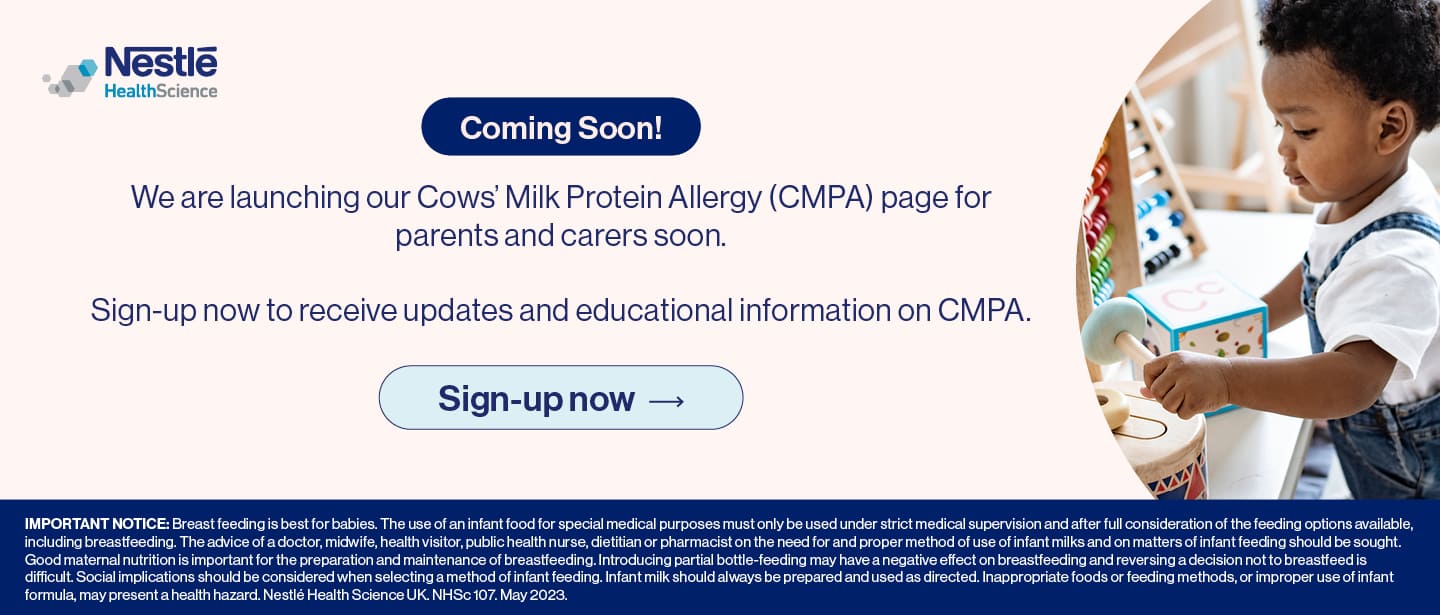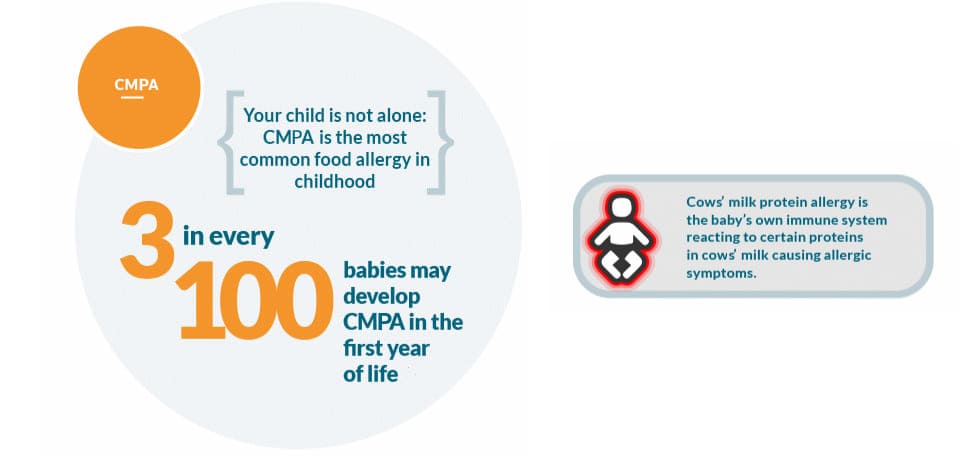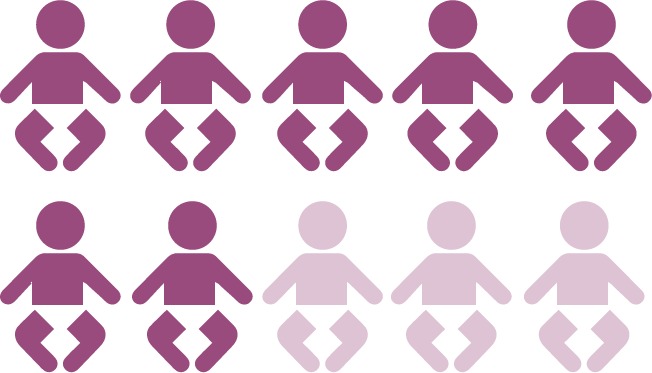What are the different types of CMPA?
There are two types of cows' milk protein allergy depending on how the immune system reacts. The first type is defined by symptoms that are ‘immediate’. This is when symptoms are caused by the immunoglobulin E antibody (IgE). Typically, these allergic symptoms happen within minutes of consuming cow’s milk or up to two hours afterwards. This is known as IgE-mediated.
The other type of CMPA is ‘delayed’, where symptoms are slow to appear. This is described as non-IgE mediated and is the most common type. The symptoms usually develop from two hours after consumption but can take up to a week to appear.
What to do if you suspect your baby might be allergic to cows’ milk protein
If you’re unsure if your baby has a cow’s milk allergy or not, try answering a few simple questions with our symptom checker. This can help your doctor make an accurate CMPA diagnosis.
Fill out the symptom checker here *
* Just because your baby has some of the symptoms of CMPA it does not mean they have CMPA, especially as a lot of the symptoms of CMPA are similar to the expected behaviour of your baby or they overlap with other common problems. Getting an accurate diagnosis is important. If you suspect you baby maybe allergic to cow’s milk protein, you should always discuss this with your doctor or healthcare professional.
Preparing for your doctor's appointment will help to ensure that they’re aware of all your baby's symptoms.
During your appointment, the doctor may suggest carrying out the following tests to make a cow’s milk allergy diagnosis:
Elimination diet followed by food challenge
During this form of testing, cow’s milk protein is completely eliminated for 2-6 weeks, then reintroduced to see if the symptoms reappear to prevent misdiagnosis and unnecessary dietary exclusions.
Skin prick test
With a skin prick test, the skin is firstly scratched and then a tiny amount of the food/allergen is added to the skin.
Blood test
During a blood test, your physician will take a small amount of blood in order to investigate for antibodies against a protein in cow’s milk known as ‘immunoglobulin E IgE’.
Elimination diet and food challenge
Your doctor or health care professional (HCP) will first examine your baby and ask about any symptoms you may have noticed. If cows' milk allergy (CMPA) is suspected, your doctor may then perform specific allergy tests to confirm the diagnosis. These tests may include a blood test, skin prick test, patch test, or elimination diet followed by a food challenge.
It is important that you do not experiment with a cows' milk-free diet for your baby without recommendation and guidance from your HCP. Based on the age of your baby and the severity of the symptoms, your doctor or HCP will recommend the most suitable solution.
The best way for your doctor or HCP to confirm or exclude the diagnosis of CMA is through an elimination diet, which involves eliminating cows' milk protein from your baby’s diet, followed by a food challenge, in which cows' milk protein is reintroduced. Although CMA is rarely observed in breastfed babies, if you are breastfeeding, your doctor will help you eliminate cows' milk protein from your diet.
If your baby has an allergic reaction to cows’ milk protein, you are likely to notice improvements very quickly after starting the elimination diet; most symptoms will disappear within 2 to 4 weeks, and all should completely disappear within 6 weeks. If improvements in symptoms are seen, then your doctor will suggest reintroducing cows' milk protein into your baby’s diet in small amounts to check if symptoms reappear to confirm the diagnosis. If avoiding cows' milk protein does not help your baby, it is unlikely that your baby has CMA, and your doctor or HCP will investigate other possible causes of the symptoms observed.
If the diagnosis of CMPA is confirmed, the good news is that with the support of your doctor, it can be managed. The key is to seek support from your doctor as early as possible to ensure a fast and accurate diagnosis.
Diagnosis of a cows’ milk protein allergy should not impact your breastfeeding routine. Mothers are encouraged to continue breastfeeding even when their babies have CMA. This usually requires qualified dietary counselling to completely exclude all sources of cows’ milk protein from the mother’s diet.







